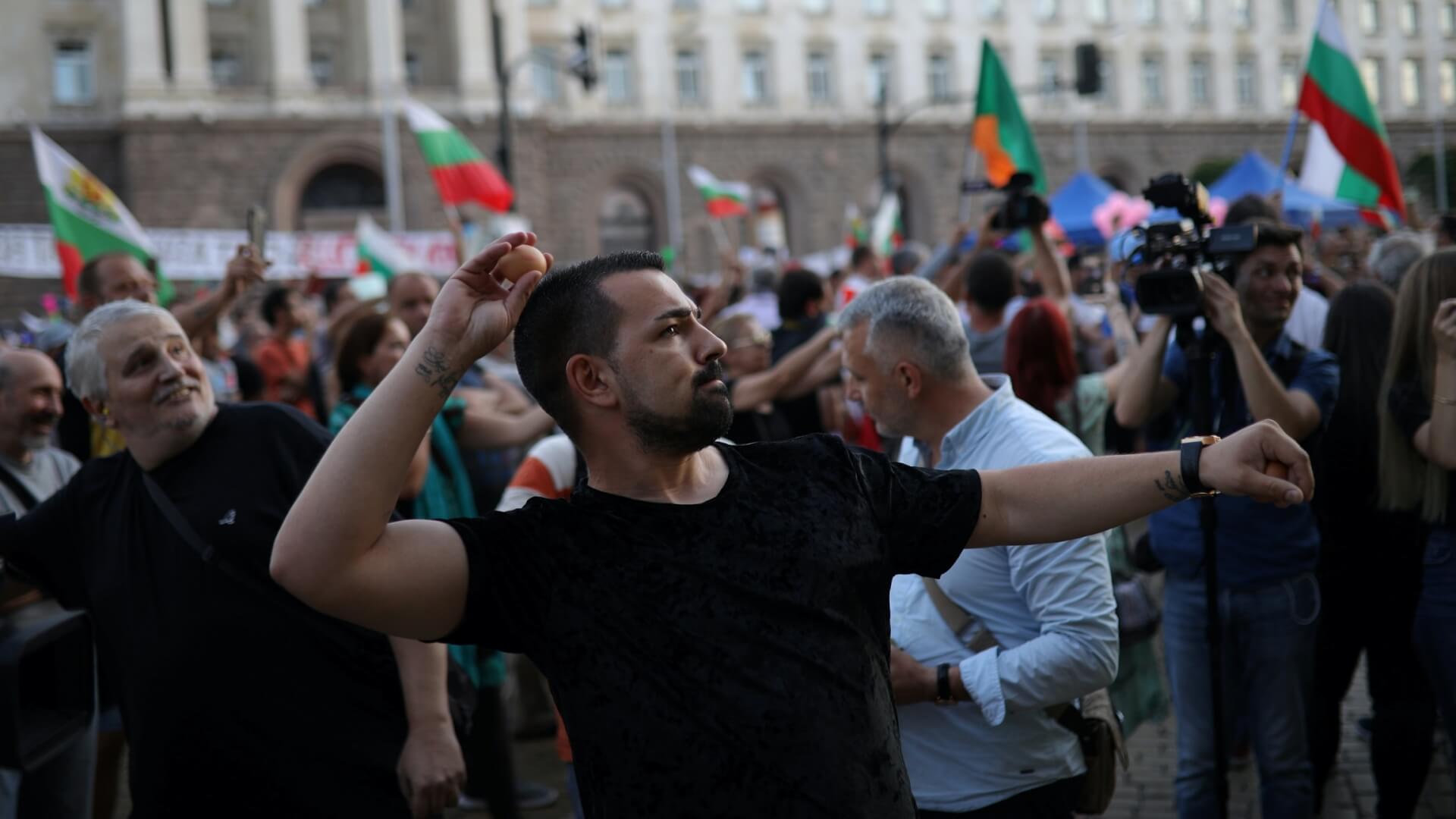Today marks the 62nd day that Bulgarian citizens have been demonstrating in what organizers are calling the “Grand National Uprising 2” in the country’s capital, Sofia.
Since the beginning of this year, a series of localized scandals and crises have built up frustration and tensions in the pubic sphere, culminating in an explosive wave of protests in July against the ruling GERB party’s undeterred 10-year rule. Over 5,000 demonstrators have been gathering every day in the city centre to demand the immediate resignation of Prime Minister Boiko Borissov and his government, especially Prosecutor-General Ivan Geshev.
The Bulgarians have faced several hurdles this year, beginning with a water crisis during the winter that led to the drying of numerous dams. This created a massive water shortage in the country, which was later attributed to a lack of infrastructural maintenance and government negligence towards the exploitation of water reserves by large industries. Further, the government has failed miserably at handling the coronavirus pandemic, with several doctors and medical workers resigning from their posts at the frontlines due to severe shortages of protective equipment and inadequate emergency facilities in place.
Additionally, numerous scandals have come to light in recent months, which include corrupt schemes by administrators involving lucrative property deals along the coast of the Black Sea. Most notably, a beach case has been in the limelight, where the landslide of a so-called “fortification wall” paved the way for the building of a luxury hotel on the beach. The incident significantly irked Bulgarian citizens, who have long been fighting against careless overdevelopment at the Black Sea coast.
Further, the summer also saw a massive reshuffling of ranks in the ruling party and businesses close to them, leading to the downfall of business magnate Vassil Bozhkov. This led to a turf war which was ultimately revealed to the public in the form of leaks, where candid photographs of the Prime Minister sleeping next to gold bars, a gun, and stacks of bills were put out into the media. The Anti-Corruption Fund also released a documentary that highlighted the insidious corruption schemes between the judiciary, state institutions, and high-profile businesses.
In July, the liberal coalition Democratic Bulgaria, led by Hristo Ivanov, brought the intra-elite scuffle onto the streets by going to an illegally-enclosed beach and surrounding Ahmed Dogan’s seafront mansion. Dogan is a leader of the liberal party Movement for Rights and Liberties (DPS), which is notorious for its corruption. Ivanov and his team were brutally dispersed by security guards, with the skirmish becoming a nationwide issue after President Rumen Radev confirmed that the guards were employees of the National Security Service. Geshev, who has been accused of aiding corruption by protecting politicians and capitalists from charges, reacted to this by calling for a raid on the presidency, which is a gross violation of the immunity sanctioned to the leader by the constitution.
The mass protests that followed have included the participation of leaders and citizens from across the political spectrum. On 2 September, the police arrested over 125 demonstrators and deployed tear gas, water cannons, and pepper spray on the protestors, who had been relatively peaceful till then. Toma Bikov, a GERB member of parliament, used this as a scapegoat to justify the government’s halt in negotiations for its exit. “After last night’s excesses we will not resign,” he said, adding, “If we do that it would mean that any next government could be brought down by people from the criminal world.”
Earlier this week, Borissov also affirmed that he was refusing to resign because these were demands from “the mafia”. Yesterday, the Interior Ministry searched checkpoints in the protest areas and reported that it had found bags of stone, glass bottles, knives, metal pipes, and other dangerous items planted at the site in advance. Local reporters also spotted ambulances at the scene, and police presence at several crucial spots like the Presidency building, the National Assembly building, and the National Bank building.
If matters in Bulgaria stick to schedule, the country is due for a parliamentary election in spring 2021, where demonstrators would have the opportunity to vote out the current administration.

